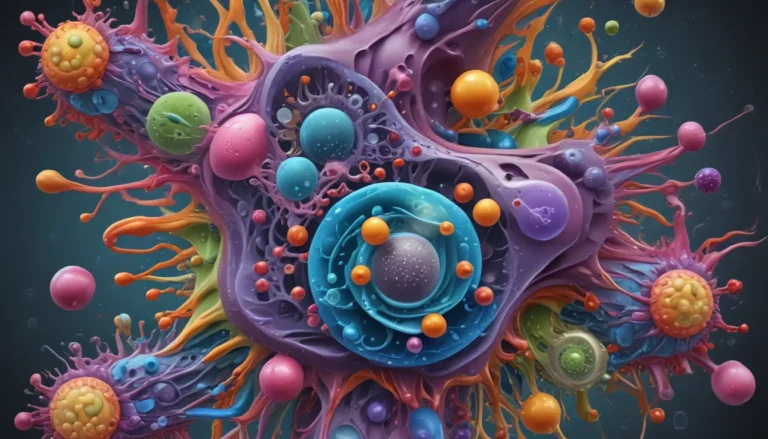A Note About Images: The images used in our articles are for illustration purposes only and may not exactly match the content. They are meant to engage readers, but the text should be relied upon for accurate information.
The central nervous system (CNS) plays a crucial role in coordinating and controlling various bodily functions, making it an essential component of the human body. However, this intricate system is vulnerable to a wide range of disorders that can disrupt its proper functioning. Central nervous system disorders encompass conditions that affect the brain or spinal cord, leading to diverse symptoms and impairments.
In this article, we will delve into 11 astounding facts about central nervous system disorders. From common conditions like Parkinson’s disease and multiple sclerosis to rare and complex disorders such as encephalitis and spinal cord injuries, understanding these disorders is essential for both medical professionals and individuals who may be impacted by or curious about them. Let’s increase our knowledge and explore the fascinating world of central nervous system disorders together.
Key Takeaways:
- Central nervous system disorders affect millions of people worldwide, presenting diverse symptoms and unknown causes. Early intervention, lifestyle modifications, and support are vital for managing these conditions and enhancing quality of life. Research and innovation continue to advance treatment options for central nervous system disorders, while lifestyle factors can influence the risk of developing these conditions. Support and advocacy play a crucial role in assisting individuals affected by these disorders.
Central Nervous System Disorders: Key Insights
1. Central nervous system disorders impact millions of people globally
Conditions like Alzheimer’s disease, Parkinson’s disease, and multiple sclerosis have a significant impact on individuals worldwide. These disorders vary in severity and present a wide range of symptoms, highlighting the importance of early detection and effective treatment.
2. The causes of many central nervous system disorders remain unknown
Despite advancements in medical research, the exact causes of several central nervous system disorders are still not fully understood. Factors such as genetic predispositions, environmental triggers, and immune system dysfunction are under investigation to unravel the underlying mechanisms of these conditions.
3. Genetic factors contribute to some central nervous system disorders
Certain disorders, such as Huntington’s disease and specific forms of epilepsy, have genetic components that can be passed down through generations. Genetic testing and counseling are essential in identifying and managing hereditary central nervous system disorders.
4. Central nervous system disorders present a diverse range of symptoms
From cognitive impairment to movement difficulties and mood disorders, central nervous system disorders can manifest in various ways. Accurate diagnosis and tailored treatment plans are crucial in addressing the unique symptoms associated with each disorder.
5. Early intervention is key for managing central nervous system disorders
Timely intervention can significantly impact the prognosis and management of central nervous system disorders. Detecting these conditions early and implementing appropriate treatments can help slow disease progression and enhance overall quality of life.
6. Central nervous system disorders can occur at any age
While some disorders are commonly associated with older adults, others can affect individuals from infancy to adulthood. Raising awareness about the diverse range of central nervous system disorders is essential for understanding and addressing the needs of individuals of all ages.
7. Cognitive function can be impacted by central nervous system disorders
Disorders like dementia and traumatic brain injuries can severely affect cognitive functions such as memory, attention, and problem-solving abilities. Rehabilitation, therapy, and support services play a crucial role in helping individuals maintain optimal cognitive function.
8. Central nervous system disorders have societal and economic implications
The prevalence of central nervous system disorders, combined with the long-term care required for affected individuals, can pose a significant economic burden on societies. Collaboration between governments, healthcare systems, and communities is essential to allocate resources effectively for treatment and support services.
9. Research and innovation drive advancements in treatment options
Ongoing research and technological developments have led to improved treatment options for central nervous system disorders. From innovative drug therapies to emerging neurostimulation techniques, scientists and medical professionals are making strides in managing these conditions and enhancing quality of life for patients.
10. Lifestyle factors influence the risk of developing central nervous system disorders
Adopting a healthy lifestyle, including regular exercise, a balanced diet, and cognitive activities, can impact the risk and progression of central nervous system disorders. Making positive lifestyle choices can help reduce the risk and delay the onset of these conditions.
11. Support and advocacy are crucial for individuals with central nervous system disorders
In addition to medical care, individuals with central nervous system disorders require support, awareness, and access to healthcare and community resources. Advocating for equal access to services and promoting understanding and empathy are essential in improving the lives of those affected by these disorders.
12. FAQs about Central Nervous System Disorders
- Common symptoms: Headaches, dizziness, numbness, seizures, memory problems, mood changes.
- Hereditary nature: Some disorders are hereditary, while others can be influenced by environmental factors.
- Diagnosis: Involves physical exams, medical history reviews, imaging tests, and laboratory analyses.
- Cures: While some disorders can be managed, there is no known cure for many of these conditions.
- Lifestyle changes: Adopting a healthy lifestyle can positively impact the management of central nervous system disorders.
In conclusion, central nervous system disorders present a complex and impactful challenge for individuals worldwide. By understanding the facts surrounding these disorders, we can empower ourselves to take action in raising awareness, supporting affected individuals, and advancing research efforts for prevention and treatment strategies. The road to managing central nervous system disorders is a journey that requires collaboration, compassion, and continuous learning.
By exploring the intricate world of central nervous system disorders, we gain insight into the complexities of neurological health and the importance of ongoing research and advocacy. Whether it’s raising awareness during Parkinson’s Awareness Month, learning from personal experiences like Ann Romney’s journey with multiple sclerosis, or delving into the latest advancements in treatment options, each step brings us closer to a better understanding of these conditions.
Our commitment to providing accurate and engaging content stems from the contributions of real users like you. Every fact shared on our platform undergoes meticulous review to ensure credibility and reliability. Trust in our dedication to quality and authenticity as we continue to explore the diverse landscape of central nervous system disorders together.






